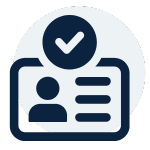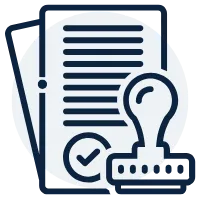The Federal Court’s decision in Helmzadeh v. Minister of Citizenship and Immigration, 2025 FC 1023, provides critical guidance for entrepreneurs applying for Canada’s Start-up Visa program, particularly when seeking a substituted evaluation under section 98.10 of the Immigration and Refugee Protection Regulations (IRPR). This analysis breaks down the court’s findings, clarifies the legal framework for substituted evaluations, and offers practical strategies for start-up visa applicants to strengthen their applications.
Case Background

Dr. Zohreh Helmzadeh, a 52-year-old Iranian physician, applied for permanent residence under the Start-up Visa program aiming to establish a healthcare tech company in Vancouver. Her application was denied due to a 4.5 IELTS listening score (0.5 below the required CLB 5), and her subsequent request for a substituted evaluation under IRPR section 98.10(1) was also rejected.
CONTACT AN IMMIGRATION LAWYER TALK TO LIA
Legal Issues and Court Findings

The Federal Court, presided over by Justice Thorne, addressed whether the officer’s assessment of the substituted evaluation request was reasonable.
The court found the officer’s assessment of substitute evaluation request was unreasonable because:
- The officer focused solely on Dr. Helmzadeh’s language skills, stating she lacked “strong enough communication skills”. This approach incorrectly treated the evaluation as a replacement of language test results rather than a holistic assessment of economic establishment potential.
- The officer ignored relevant evidence, specifically Dr. Helmzadeh’s submission of her “extensive medical expertise,” which was central to her argument for economic potential.
- The officer’s reasoning was limited to Dr. Helmzadeh’s IELTS scores (noting she met the minimum in two of four areas) without linking this to her broader ability to succeed economically. This violated the requirement for a “transparent, intelligible, and justified” decision.
The court held that the officer’s failure to apply the correct legal test under section 98.10(1) and to consider central evidence made the decision unreasonable. The matter was remitted for redetermination by a different officer.
Legal Framework for Substituted Evaluations
The Helmzadeh decision clarifies the proper application of IRPR section 98.10(1). Officers must evaluate the applicant’s overall economic potential, considering:
- Entrepreneurial track record
- Support from business networks or designated entities
- Potential contributions to Canada’s economy
- Integration prospects
This framework emphasizes flexibility, recognizing that rigid criteria may not fully capture an entrepreneur’s ability to succeed.
Practical Implications for Start-up Visa Applicants
For entrepreneurs and start-up visa applicants, the Helmzadeh decision offers actionable strategies to navigate the substituted evaluation process:
Present a robust case for your economic potential, including:
- Detailed résumé showcasing entrepreneurial experience, leadership, and achievements.
- A market-driven business plan demonstrating viability and impact in Canada.
- Letters of support from designated entities, investors, or industry partners.
- Evidence of past business successes or innovations.
If language scores fall short, demonstrate communication skills in your entrepreneurial context.
Provide:
- Evidence of English-language business communications (e.g., emails, contracts).
- Testimonials from English-speaking partners or clients.
- Records of presentations or negotiations conducted in English.
The Helmzadeh decision reinforces the Start-up Visa program’s purpose: to attract innovative entrepreneurs who can drive economic growth, even if they don’t meet rigid criteria. By clarifying the framework for substituted evaluations, the court provides a roadmap for entrepreneurs to overcome minor shortfalls in language scores or other requirements. Applicants should leverage this ruling by presenting comprehensive evidence of their entrepreneurial capabilities, contextualizing communication skills, and addressing exceptional circumstances. With proper preparation and professional support, entrepreneurs can navigate the Start-up Visa program with greater confidence.
Note: This analysis is based on the court’s public decision and is not legal advice. Contact Us for personalized guidance.















